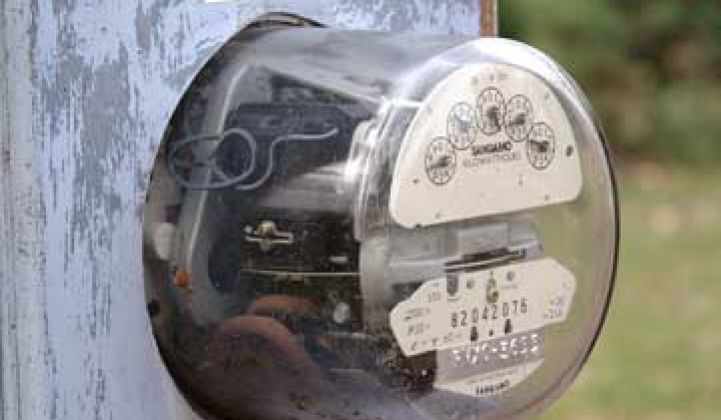The Maine Public Utilities Commission will require Central Maine Power to offer an opt-out program for customers who don’t want smart meters, according to a statement from the Maine PUC on Tuesday.
The utility, which has about 600,000 customers, will have to provide two options: leaving an analog meter in place or turning off the transmitter in the smart meter.
Like the proposal by Pacific Gas & Electric, ditching the new technology will come at a cost. Having the transmitter turned off will cost $20 upfront, as well as a $10.50 monthly charge thereafter. Keeping that old analog meter is really for the dedicated folks out there (i.e., the ones still making calls on rotary phones) -- it will come with an initial charge of $40 and a monthly charge of $12. The rate is cut in half for low-income residents who are eligible for Low Income Heating Assistance.
“For the long-term success of smart meter implementation and to maximize its potential to the fullest, the public needs to be actively engaged in monitoring their usage and real-time price of electricity and modifying their behavior accordingly,” MPUC Commissioner Vendean Vafiades said in a statement. “To achieve this goal, we need to shift the focus to the benefits of smart meters and allow the small minority to opt out.”
The decision comes after 10 CMP customers filed various grievances about the safety of the new hardware, with cited complaints ranging from electromagnetic field health concerns to the risk of smart meters catching on fire. The opt-out, however, is all those customers will get. The Commission also said it will not investigate safety issues including fires associated with smart meters or another request to look at the smart meter’s interference with electronics and medical devices. The regulators said that CMP, which is owned by Iberdrola USA, has already adequately addressed those concerns.
Several scientific studies have found no connection between EMF and health risks, although some assert that certain individuals can suffer from acute sensitivity to it. While some protestors seem amenable to opt-out provisions, others seek more drastic measures, like a complete rollback of the meter program. In Maine, however, the power of choice seems like enough to quiet skeptics. Adam Taylor, a Falmouth-based attorney who helped file the grievances with Maine's PUC, told Maine Public Broadcasting that his clients were simply looking for a choice.
CMP will have to put together a customer education plan to let residents know about the opt-out option during the smart grid deployment, which will be completed early in 2012. The likelihood is that few customers will actually go through with the opt-out, and by offering it, CMP can silence a vocal minority.
Pacific Gas & Electric is still waiting for final approval of its opt-out plan, but the decision in Maine could bolster the case for its requirement that those who opt out must pay a premium.



